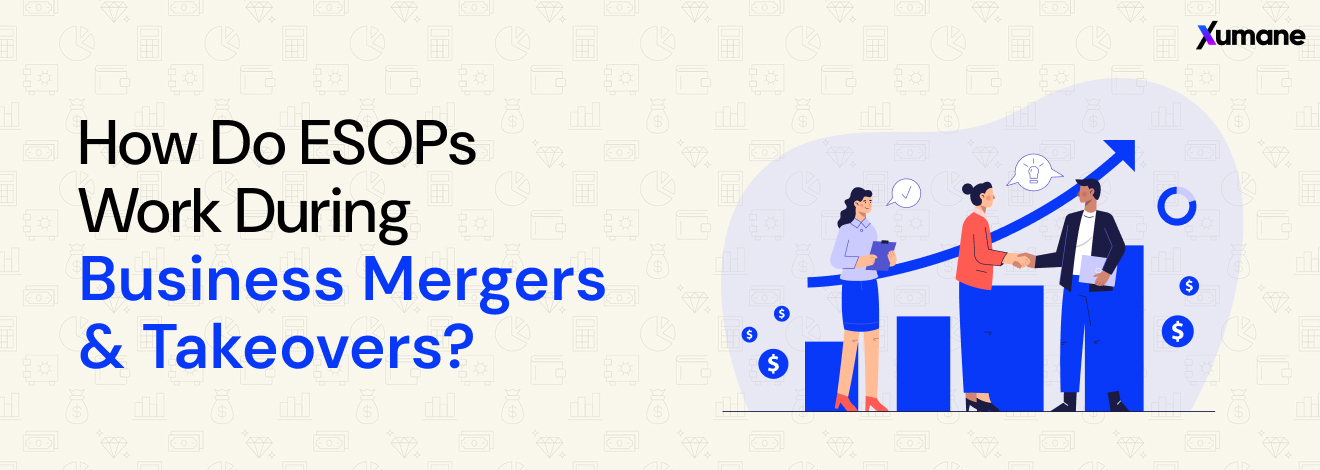
Subscribe to stay ahead with expert insights on ESOPs, smart ownership strategies, and more!
Editor's Note:-Companies today are increasingly adopting ESOPs as a vital compensation strategy to attract and retain top talent. Given this trend, it’s important to understand how mergers and takeovers can affect employee ESOPs. This blog offers valuable insights and guidance for employees navigating these significant organizational transitions. Stay informed and empowered during these changes!
Employee stock option plans (ESOPs) are great for companies looking to attract and retain their top talent. These act as an incentive plan beyond the conventional compensation plan. Through this, employees gain the right to own company shares post a vesting period.
This creates a mutually beneficial framework where company gains the loyalty and expertise of a motivated employee and the employee gets a share of the company’s growth.
You may have come across these recent mergers and acquisitions news:
So what happens if the company goes through a corporate restructuring event, such as a merger or an acquisition?
We’ll explore the impact of these events on ESOPs. Let’s dive in!
Now, let’s get to the meat of the matter. What happens to an employee’s ESOPs when the company’s management goes through a merger or acquisition , or a change of hands.
When corporate restructuring occurs, it’s often up to the acquiring company to decide how to handle the ESOP policy of the company being acquired. The treatment of options also depends on their stage, whether they are vested, unvested, or already exercised. So you must take into account things like whether an option has completed its vesting period or what is its offer price as per fair market value etc.
1. Vested Options: In the case that the stock options of an employee are already vested, the acquiring company will compensate the employee in lieu of the value of the vested stock options.
Or else the acquiring company can choose to pay the employee in cash or in the form of shares of its own company’s stock. If it chooses to pay in cash, the amount is usually based on the exit price offered to the company shareholders. And if it chooses to pay in stock of its company, then the value of these shares will be equivalent to the value of the vested options. For example, the stock value of 1 ESOP worth INR 10k is exchanged with 10 ESOPs that are worth INR 1k of the new company on a pro-rata basis.
2. Unvested Options: In the case of unvested options of the employee, the acquiring company might decide to shorten the vesting schedule of the ESOPs and most probably bring it to an immediate period. This allows employees to benefit from the merger or acquisition faster.
3. Exercised Options: Now, there will be some employees who may have already exercised their allotted stock options and are currently holding company shares. These employees are usually given the choice to swap these shares for shares of the acquiring company.
Let’s understand this with an example. Imagine Company X merges with Company Y. Company X shareholders receive 2 shares of Company Y for every share in Company X. The ESOPs held by Company X employees adjust based on this share exchange ratio.
So an employee with 500 ESOPs in Company X would see these adjusted to 1000 ESOPs in Company Y. Similarly, the exercise price adjusts from Rs. 80 per share to Rs. 40 per share. Note that the vesting and exercise periods remain unchanged. This ensures that employees receive the value of their options by way of the fair value method, despite the new company structure.
The scenarios of the handling of ESOPs in mergers and acquisitions discussed above are usually explicitly mentioned in the grant agreements that employees receive.
However, if such terms are not explicitly defined, both the acquiring and target companies reach a resolution to ensure fair treatment for employees.
But in such M&A transactions, what if employees disagree with how their ESOPs are handled? In this case, they may consider it a breach of contract. They have the option to challenge the arrangement before the National Company Law Appellate Tribunal (NCLAT).
Ultimately, in the vast majority of cases, everyone strives to ensure that employees’ ESOPs are managed transparently and with fair compensation.
If you find yourself in an M&A situation, consider seeking professional advice to ensure your interests are adequately protected.